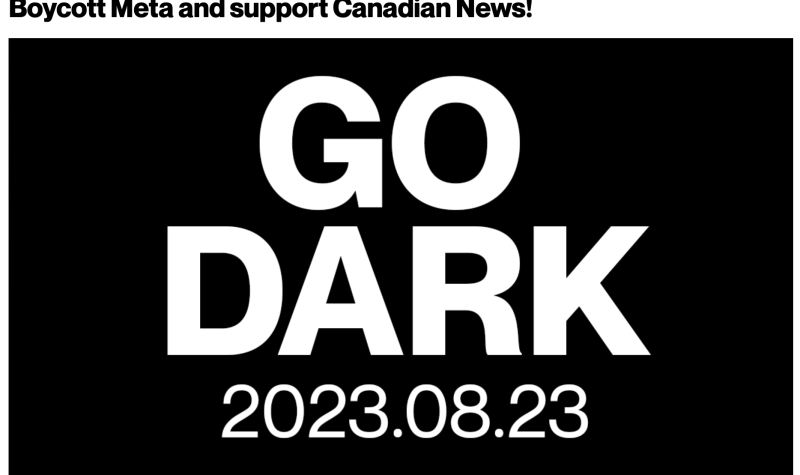The Friends of Canadian Broadcasting is calling for Canadians to go dark on Facebook and Instagram today in protest of Meta’s blocking of all news content for its Canadian users.
CHMAFM.com is included in the long list of national, provincial and local news sites blocked by Meta.
“It’s a small action,” says Sarah Andrews, director of government and media relations at the non-profit, non-industry advocacy group. “But at the same time, the more people participating in this, the stronger message we will send to Meta.”
As of Wednesday night, the Friends campaign had just over 4,000 supporters sending letters to their MP asking them to join the boycott, and a number of organizations had signed on in support, including the Bloc Quebecois, the Canadian Media Producers Association, Québecor, and the Federation of Quebec Journalists.
“What we’ve been asking Canadians to do yesterday and today is to not post on Facebook and Instagram,” says Andrews. “And if they can, even choose not to go on the platforms at all.”
Because Meta makes money from user presence on its platforms, the company will take note of a drop in numbers, says Andrews. “By not being present on the platforms, we hope that it will send Meta a message that we won’t be pushed around, and that they should reverse course, and allow us access to news.”
Andrews believes Meta is aware of the boycott action, and that “a lot of Canadians across the country are not happy with what is happening, especially when you consider what’s going on in Western Canada with the fires, and the fact that people are not able to access local news on platforms like Facebook and Instagram.”
Andrews says that with other jurisdictions like Australia and California also tackling the distribution of online news revenue, she doesn’t see how Meta can justify its boycott of Canadian news.
She also points out that Meta is not the only online platform that Canada’s Bill C-18, the online news act, sets its sights on. “Google is another platform that will be compensating media under this new law,” says Andrews, “and Google is still in conversation with the government to work out a deal that will work.”
Andrews says she’s hoping for an outcome that will make way for some growth in the Canadian journalism sector, “a reverse of what we’ve seen for the last 10-15 years, where so many outlets have been shuttering, and jobs are being lost across the board,” says Andrews. But the first step is getting the players back to the negotiating table.
“I really don’t understand what Meta’s problem is, walking away from the table and not continuing the conversation with the government,” says Andrews. “If Google is able to stay, it will be up to Meta to kind of explain to us why they can’t stay as well.”
You can find out more about the the boycott at friends.ca
Hear the full interview with Sarah Andrews here:


